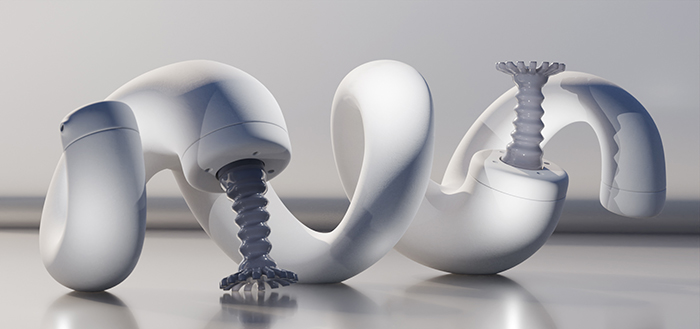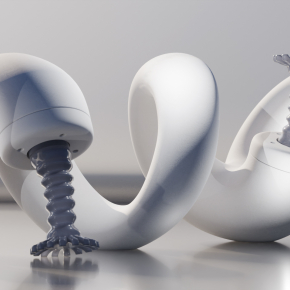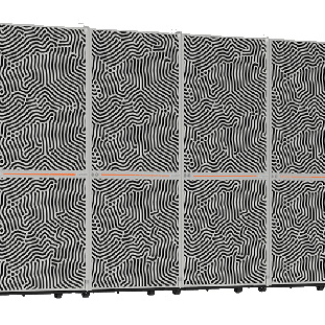
France 2030: The CEA, CNRS, and Inria to lead a major national research programme for robotics adapted to human beings
Rethinking modern robotics to better account for societal needs, that is the central goal of the Organic Robotics national research programme launched in Montpellier this Monday, 11 March 2024. With a budget of 34 million euros over 8 years in connection with France 2030, this major programme seeks to create robots that interact smoothly and naturally with humans. Led by the CEA, CNRS, and Inria, it will initially concentrate its efforts on health, and more generally on assistive services.
In recent decades, robotics has been a source of innovation for production, logistics, intervention, exploration, and health systems. Despite immense technological progress, issues nevertheless remain regarding the integration of robots in our lives and society. It is now crucial to design robotics differently, with a view to making it more attuned to humans and nature, more flexible and less resource-intensive.
Led by the CEA, CNRS, and Inria, the brand new Organic Robotics exploratory research programme aims to develop a socially adapted robotics with respect to its principles, behaviour, performance, and uses, one that is more open to the complexity of societal issues. It will be based on a multidisciplinary approach combining the social sciences and humanities, digital sciences, and engineering sciences. The synergy of these various disciplines will enable a decisive break from current robotics technologies and their limitations.
The objective is to create a new generation of robots that can interact smoothly and naturally with users, as well as adapt socially in their interactions. These new robots could support the technological transition of societies by offering citizens well-adapted, reactive, and reliable services. Central to the programme is a reflexive approach that rethinks uses as well as the relation between robotics and society, and more generally between technologies and societies.
To this end:
- Four “structural actions” will revisit certain cornerstones of robotics: mechanical conception and design, the study of movement, decision making, and simulation in light of technological transformations and societal challenges. These actions will seek to revitalize the community through a new and fundamentally interdisciplinary approach.
- “integrated projects” will explore specific uses: the interaction and role of robots as part of a medical approach (prosthesis or exoskeleton) or a work collaboration (industry, agriculture). Other uses—for entertainment or robot-mediated socialisation—will be studied as part of structural actions and governance. The goal is to revisit conceptions of robotics in certain specific uses. A call for expressions of interest will be launched during the programme to explore additional uses.
Robotics has a major economic, environmental, and societal impact. The programme’s pilots will focus on short-term efforts in health, and more generally in assistive services. Other uses will be explored, gradually and in collaboration with the social sciences. The budget devoted to this programme will essentially be used to fund doctoral theses, postdoctoral fellowships, and research engineer contracts, in addition to helping fund new platforms. In-depth thinking will also be pursued, notably with a Maison des humanités potentielles that is open to the community, students, artists, designers, and the general public via citizen science activities.
|
The government is allocating 3 billion euros from France 2030 via its ambitious research programmes (PEPRs), an effort led by institutions with a view to consolidating French leadership in key fields that are connected—or likely to be connected—to a technological, economic, societal, health or environmental transformation, and that are considered a priority on the national or European level. The French National Research Agency (ANR) operates PEPRs on behalf of the government. |



